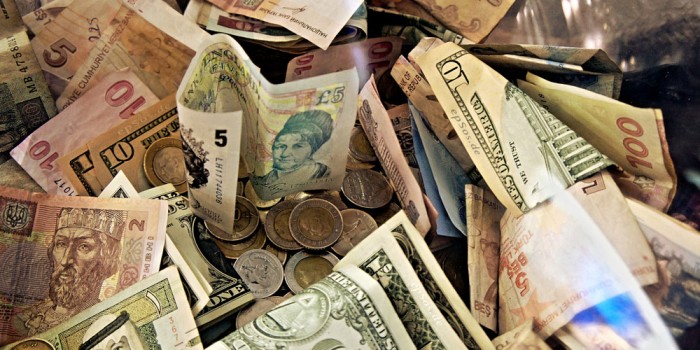Learning from Bus Buddhists
In psychological terms, context is almost everything. Much as we like to think that we know how we will act and react in a given situation, without the richness of...
What’s Your Product Worth?

What’s your product worth? It’s a simple question but, from the perspective of consumer psychology, quite a complex one to answer.
Of course there is the issue of the price. But it’s very hard to know if you have it priced right isn’t it. If you change your price you need to leave it at that price long enough for people to get over the comparison you’ve encouraged them to make by pricing it at different price, before you can get an accurate read on whether you sell more at that new price (if you see what I mean).
And who’s to say if, when you change the price, some other change has occurred in the environment that renders a change in how your new price is perceived? A currency change or a competitor’s new product might mean your price is perceived very differently.
On the internet clever people can probably design your site in such a way that you can show different people different prices, but if one person looks at your site from two different computer and sees different prices they’re going to be very confused.
Whilst we’re talking about the tricky subject of price, you may find that people buy more if you charge more too.
Brain imaging studies have shown that people really do think a more expensive product is better: the same product delivered with a different price attached has been shown to light up the reward regions of the brain more powerfully.
Price and value are not always the same thing, so how do people determine what something is worth?
Part of the answer lies in the associations people have with the brand or product, and part with the associations placed around the product by skillful marketing (the subject of my eBook, The Secret of Selling).
But another dimension is the amount of effort people have put into obtaining a product. This is a phenomenon that was highlighted by a study conducted in the late 1990s.
Obtaining tickets to a popular basketball game at Duke University was a major challenge. People had to overcome queues AND win in raffles to secure a ticket.
What they discovered was that the people who had won a ticket valued it much more highly than those who had failed to do so ($2400 Vs $170).
In part this difference can be explained by loss aversion. We would expect people who actually had the tickets to value them more highly because they would be losing something they had in their possession: gain and loss are not equal in psychological terms – we feel loss much more powerfully.
But another theory that may account for the magnitude of the observed difference in valuation is the amount of effort put into obtaining the tickets.
Could it be that people value products more when they have to put more effort into getting them?
We know that saving time can be more powerful than saving money as a marketing message, so that would suggest there’s something in this theory.
People do unconsciously place a value on time, time is closely linked to effort and so the harder something is to come-by, the more people may value it.
Paradoxically this research suggests that it may not always be best to make your products as accessible as possible, especially if gaining long-term clients who buy from you repeatedly is your goal.
One very clear lesson to draw from this research is that you shouldn’t ask people who’ve bought your products to tell if you what they think they’re worth to determine if a price increase is justified.
The answers you get won’t tell you what people who haven’t bought it are prepared to pay. Only a live test will help you discover that.
Of course, if you’re looking for a powerful testimonial about how good your product is, that’s a different matter; ask away (just don’t believe the resulting hype)!
Source: Ziv Carmon and Dan Ariely (2000) ‘Focusing on the Forgone: How Value Can Appear So Different to Buyers and Sellers’ Journal of Consumer Research
Image courtesy: epSos .de